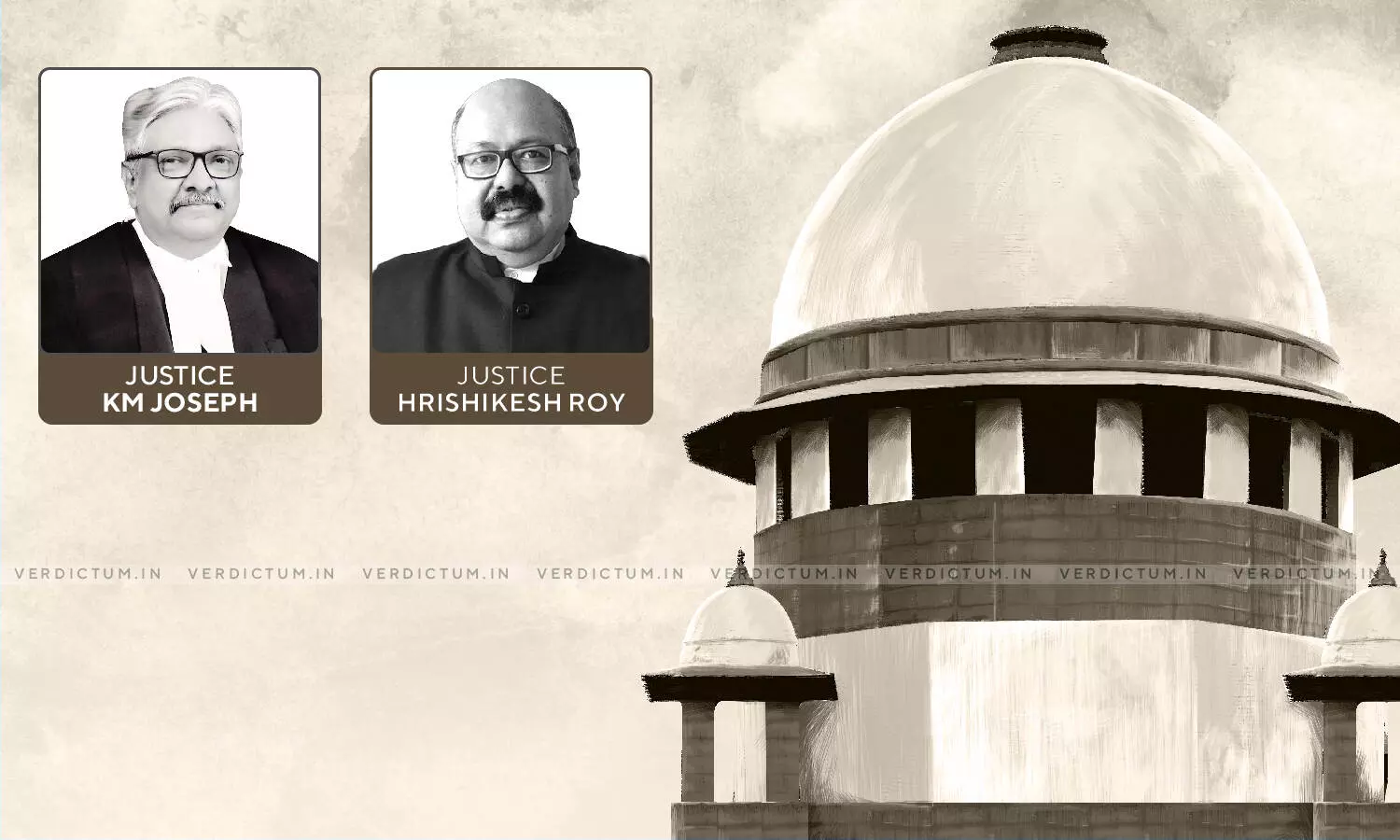
Section 138 NI Act - Scuttling Of Criminal Process Not Merited When Proceedings Are At Nascent Stage – Supreme Court
 |
|A Supreme Court Bench of Justice K.M. Joseph and Justice Hrishikesh Roy upheld a judgment of the Delhi High Court, while also emphasizing the importance of a fair trial.
The Bench held, "...to non-suit the complainant, at the stage of the summoning order, when the factual controversy is yet to be canvassed and considered by the trial court will not in our opinion be judicious. Based upon a prima facie impression, an element of criminality cannot entirely be ruled out here subject to the determination by the trial Court. Therefore, when the proceedings are at a nascent stage, scuttling of the criminal process is not merited."
On the basis of a criminal complaint, an order under Section 251 of CrPC was issued against the Appellant by the Magistrate's Court. Considering the contention that the grounds agitated by the Appellant are "factual defences" which should not be considered within the parameters of limited enquiry permissible in a petition under Section 482 CrPC, the Delhi High Court had dismissed the application which sought for quashing a summoning order issued against the Appellant under Section 138 of the Negotiable Instruments Act, 1881.
Mr. Krishnamohan K. appeared on behalf of the Appellant. Mr. K.M. Natarajan was the learned Additional Solicitor General and Senior Counsel Ms. Rebecca M. John appeared for the Complainant before the Apex Court.
The Counsel on behalf of the Appellant argued that without satisfying the essential ingredients for offence under Section 138 of the Act, the criminal process should not have been issued, and since the necessary ingredients are missing, the Appellant cannot be prosecuted for the offence. The Appellant contended that since the Complainant was still holding the shares of the Appellant's company when the cheques were presented, the Complainant was not entitled to receive any payment at that stage through the encashment of cheques.
The Complainant contended that once the cheque is issued and the signatures are admitted, the presumption of a legally enforceable debt would arise in favor of the holder of the cheque. The ASG and the Counsel for the Complainant argued that it is obligatory for the Court to raise the legal presumption against the accused when his cheque is dishonored on presentation, and therefore, the Magistrate drew the right presumption. Relying on Section 56 and Form SH-4 of the Companies Act, 2013, it was further contended by the Complainant that in share purchase transactions, the consideration is first paid to the seller as per the customary practice and only thereafter the formalities with respect to the share transfer is completed.
The Supreme Court opined that when there is a legal presumption, it is not judicious for the quashing Court to carry out a detailed enquiry on the facts alleged, without first permitting the Trial Court to evaluate the evidence of the parties. To that end, the Court also said "the quashing proceedings must not become an expedition into the merits of factual dispute, so as to conclusively vindicate either the complainant or the defence."
Relying on the parameters for invoking the inherent jurisdiction of the Court to quash the criminal proceedings under Section 482 CrPC spelled out in State of Haryana vs Bhajan Lal, the Supreme Court held that it was abundantly clear that the Court should be slow to grant the relief of quashing a complaint at a pre-trial stage, when the factual controversy is in the realm of possibility particularly because of the legal presumption, as in this matter.
To that end, the Court held that "Quashing proceedings at preliminary stages will result in finality without the parties having had an opportunity to adduce evidence and the consequence then is that the proper forum i.e., the trial Court is ousted from weighing the material evidence. If this is allowed, the accused may be given an un-merited advantage in the criminal process. Also because of the legal presumption, when the cheque and the signature are not disputed by the appellant, the balance of convenience at this stage is in favour of the complainant/prosecution, as the accused will have due opportunity to adduce defence evidence during the trial, to rebut the presumption."
Therefore, the Court held that scuttling the criminal process is not merited when the proceedings are at a nascent stage.
The Supreme Court found that the High Court had applied the correct legal principles and rightly declined relief to the Accused in the quashing proceedings. However, the Court also opined that the Appellant must get a fair opportunity to rebut the legal presumption against him by producing his evidence in an open trial by an impartial judge.
Click here to read/download the Judgment